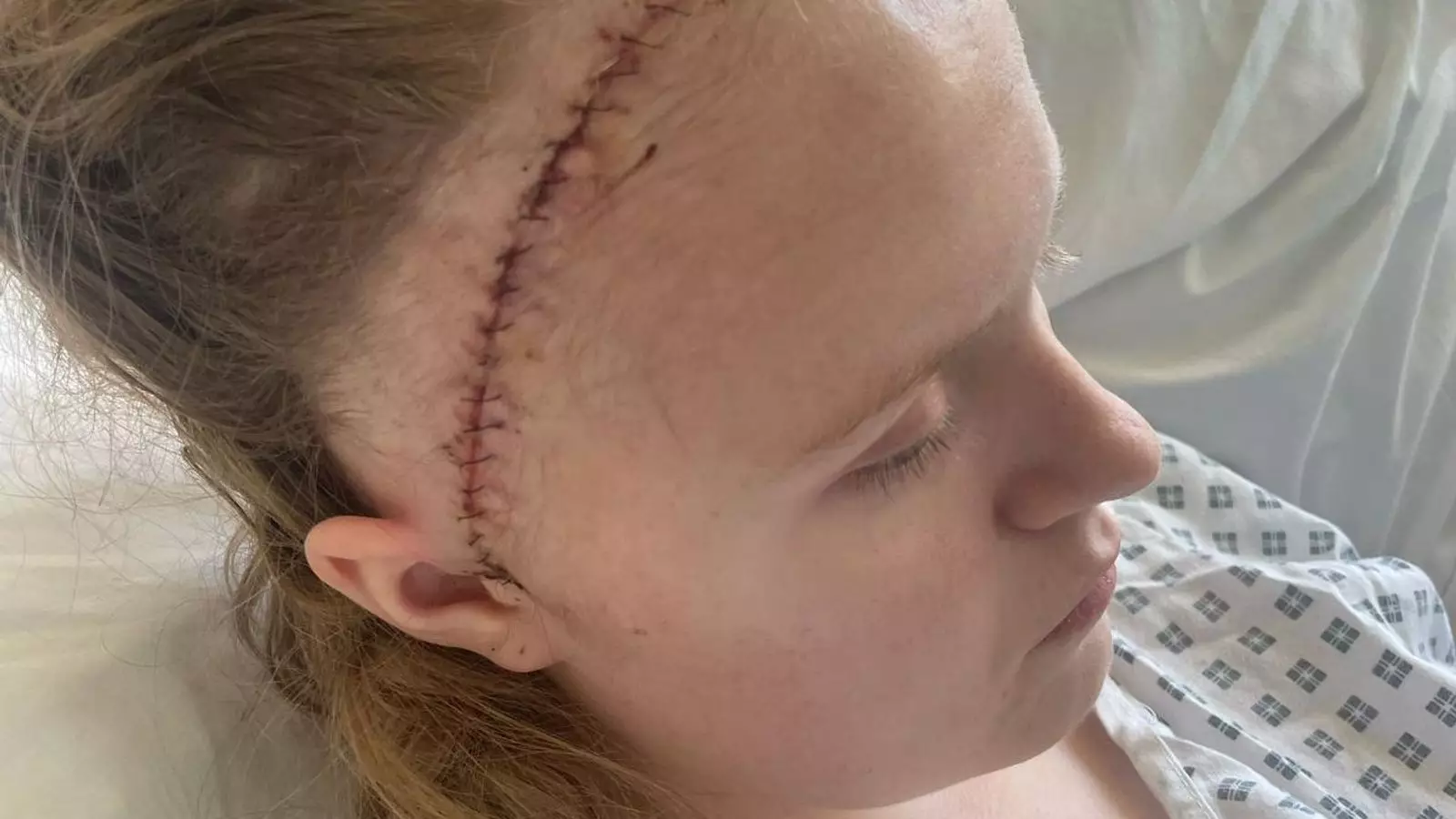At the tender age of 15, Ellie Morris-Davies faced a challenge that would send shivers down the spine of any parent. Diagnosed with a cavernoma, a rare cluster of abnormal blood vessels on the brain, her world abruptly shifted from being an aspiring performer to a patient navigating the complex and often daunting landscape of modern medicine. Symptoms arrived like an unexpected storm—persistent headaches, sensitivity to light, and debilitating nausea turned Ellie’s life into a relentless cycle of suffering. To any onlooker, this would be a heart-wrenching story of tragedy and loss, yet Ellie chose to chart a course that showcased her tenacity and spirit—a journey of recovery that transforms despair into triumph.
The Ordeal of Surgery
The crux of Ellie’s medical saga is not merely the diagnosis but the rare and harrowing details of her treatment. Entering Alder Hey Children’s Hospital, she would undergo not one, but nine surgeries in an astonishing span of just 13 weeks. The most remarkable—and quite frankly alarming—aspect of her treatment involved a decompressive craniectomy, where surgeons removed part of her skull to relieve pressure on her brain. To add an element of unsettling innovation, they chose to store that piece of skull in her stomach, a practice so rare that it forces us to question the lengths to which modern medicine will go to save a life. While such measures are often seen as a last resort, they reveal a necessity for pushing boundaries in healthcare, a subject that stirs vehement debate.
Critics of medical practices might argue that such extreme measures exemplify a cold, clinical approach that risks diminishing the humanity of the patient experience. Yet, in Ellie’s case, the surgical team’s courage and innovative tactics became a lifeline. If saving a life comes at the price of discomfort or unconventional methods, is it not worth the trade-off? Ellie’s trajectory showcases not just human resilience but also the emerging complexities in medical ethics.
Triumph Over Trials
Coming out of intensive care and facing an uphill battle, the concept of recovery became Ellie’s new normal—a landscape filled with daily physiotherapy sessions and emotional challenges. The sheer willpower she displayed transformed her prognosis, allowing her to tackle the seemingly insurmountable hurdles of relearning how to walk, talk, and swallow. Each small victory, such as singing on stage again, intricately wove a narrative of hope through a tapestry marred by adversity. For many, these feats might seem mundane; for Ellie, they are monumental testament to the human spirit’s capacity to overcome.
Describing the emotional night she returned to the stage, Ellie spoke with an honesty that underscores her strength. The heartbreak of almost losing her chance to perform, juxtaposed with the joy of reclaiming her passion, is a poignant reminder of life’s uncertainties. In a world that often takes health for granted, Ellie exemplifies the idea that every moment is to be cherished.
Lessons in Empathy and Understanding
In recounting Ellie’s story, one can’t overlook the role of community, family, and healthcare providers who rallied around her in her darkest hours. As her mother, Joanne Morris-Davies, observed her daughter’s fight against a condition that very few can relate to, it emphasizes the necessity of empathy in our society. This relentless quest for recovery not only showcases a personal journey but also advocates for a societal ethos that values compassion. For parents and families encountering similar situations, this is an invaluable reminder: support systems can be the bedrock upon which healing is built.
Ellie’s fight is not just about a girl transforming her narrative of vulnerability into one of strength; it is also a call for understanding and better healthcare. As a society, we must reflect on how we treat the illness narrative and the stakeholders involved—the patients, families, and medical professionals. Modern medicine has proven time and again that while science may provide the tools for survival, it is the human experience that gives life meaning. Ellie’s journey inspires us to embrace both our fragility and our strength in equal measure.


Leave a Reply